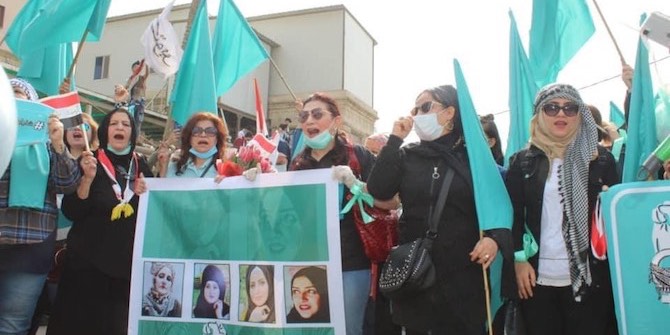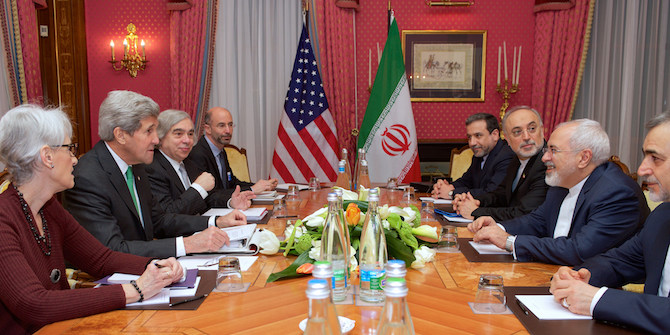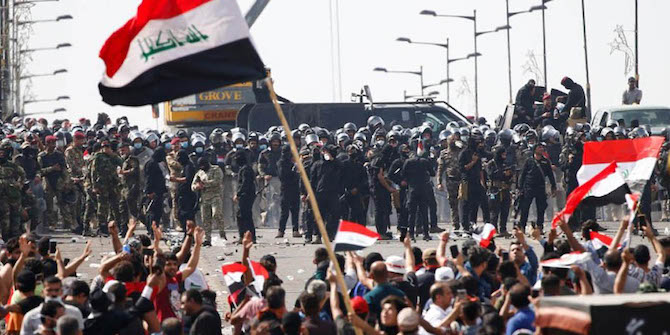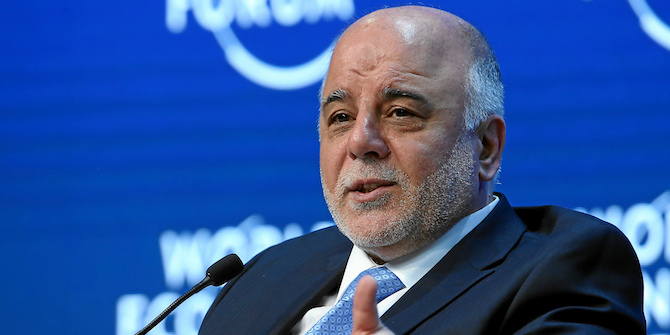by Kyra Luchtenberg
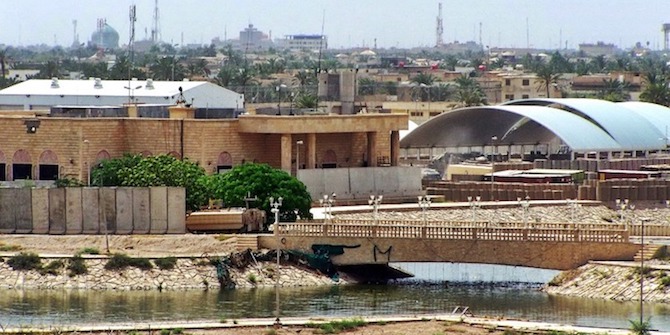
In July 2018 Iraq’s southern cities witnessed public demonstrations against government corruption, unemployment and the lack of basic services. The grievances driving these demonstrations also appear to be rooted in the structural disinvestment of Baghdad in the southern oil-rich peripheries. Yet, the popular discontent is dismissed as annually recurring frustrations over the electricity failure and water shortages amidst the searing summer heat.
The Iraqi Parliament recently held an emergency session to discuss the growing water scarcity. Turkey had started filling the Ilisu dam on the Tigris river, raising concerns of water shortages downstream in Iraq. The dam’s construction started twenty years ago, with well-founded fears of the subsequent forced displacement and its environmental impact having been dismissed.
For countries such as Iraq and Syria, the prevailing concerns are the effects downstream. Dam constructions have reduced the water of Iraq’s main rivers by at least 40 percent over the past decades. Yet, immediate security risks to Iraq’s territorial integrity incentivised the Iraqi government to deprioritise water shortage issues caused by ‘Turkey and climate change’. With the proclaimed ‘victory’ over Daesh and the public demonstrations reaching Baghdad, the debate on post-conflict governance commences once again.
Besides the obvious environmental impact, water scarcity is believed to cause social disruption, endanger public health, trigger migration and, ultimately, escalate violent conflict. This water-security nexus has steadily gained prominence in academic and policy discussions on the drivers of conflict. However, the underlying assumption that water shortages lead to civil unrest, destabilise local governance, and empower violent extremist organisations falsely depicts water as the culprit. Alternatively, one could argue that Iraq’s water scarcity is rooted in hydropolitics and Iraq’s historic mismanagement of natural resources.
Turkey’s control over water through its dam construction and hydropower projects increased regional disparities and inequalities. The geographical disadvantage of Iraq being a downstream country is exacerbated by its inferior financial and technological capabilities. In contrast to the technologically-advanced dam projects in Turkey and Iran, Iraq’s water infrastructure is heavily damaged and outdated. International political and financial backing for Turkey’s dam construction has exacerbated the region’s water supply–demand imbalances, whereas subnational hydro-politics between the Iraqi Government and the Kurdistan Regional Government preclude a united response to the regional disparities in water supply.
The downstream provinces of southern Iraq have disproportionally witnessed shortages in drinking and agricultural water for centuries. Recent tribal disputes over water scarcity in southern Iraq could reinforce the perception that drought pose a threat to Iraq’s ‘fragile security’. Instead, the impact of Baghdad’s lack of investment in modernising the water supply system, combined with environmental degradation, on resource-based local livelihoods and the wider ecosystem downstream needs to be considered. This illustrates the importance of considering the larger political economy of Iraq, when discussing the links between water, peace and security.
Previous efforts to accomplish a more sustainable and equitable distribution of resources and opportunities sought to decentralise natural resource management and increase civil society engagement in Iraq’s southern provinces. Building on the argument that water-sharing inequality (not water scarcity) causes and sustains popular unrest and ultimately violent conflict, water cooperation can therefore serve as a catalyst for peace and regional stability. The underlying assumption is that the interdependency created by shared environmental, political and socio-economic issues will incentivise governmental actors to pursue collective solutions.
The Iraqi government is, indeed, seeking to develop a national strategy on water governance and regional cooperation on transboundary river management with support of the UN Development Programme. Water diplomacy interventions, such as joint fact-finding missions between Baghdad and Erbil, could serve as a trust-building mechanism and foster cooperative relationships on a governmental level. Still, the question remains whether a more equitable allocation of water resources is likely to contribute to peacebuilding in the context of Iraq’s failing state institutions and their legitimacy deficit.
*This blogpost introduces the LSE research project Natural Resource Management and Peacebuilding in post-IS Iraq by Kyra Luchtenberg, examining the links between water, peace and security.
 Kyra Luchtenberg is a Research Assistant at the LSE Middle East Centre, where she is Principle Investigator for the project Natural Resource Management and Peacebuilding in post-IS Iraq, and also works at Independent Diplomat. Her research areas include conflict dynamics, forced displacement, transitional justice and collective memory in the Middle East, with a specific focus on Iraq, Syria and Lebanon. She tweets at @KyraLuchtenberg
Kyra Luchtenberg is a Research Assistant at the LSE Middle East Centre, where she is Principle Investigator for the project Natural Resource Management and Peacebuilding in post-IS Iraq, and also works at Independent Diplomat. Her research areas include conflict dynamics, forced displacement, transitional justice and collective memory in the Middle East, with a specific focus on Iraq, Syria and Lebanon. She tweets at @KyraLuchtenberg



